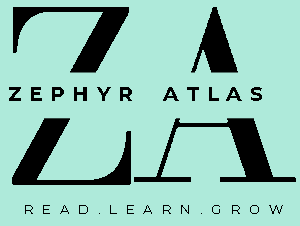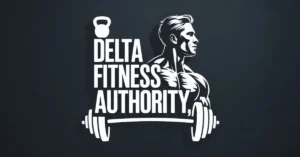Key Intake
Q1: What does the Z71 mean on a Chevy truck?
It’s Chevrolet’s factory off-road package. It adds suspension tuning, skid plates, all-terrain tires, and traction features to handle rough roads.
Q2: How is the Z71 package different from 4×4
4×4 is the drivetrain. Z71 adds suspension, protection, and traction hardware that make the drivetrain effective off-road.
Q3: Why is the Z71 badge popular among Chevy owners?
It signals capability and heritage. Z71 has history and real hardware, so it holds resale and cultural appeal among buyers.
Q4: Which Chevy models offer the Z71 package?
Silverado, Colorado, Tahoe, Suburban, and some Traverse trims. Availability varies by model year and market.
Q5: What upgrades come with the Z71 off-road package?
Typical upgrades: Rancho shocks, skid plates, locking rear differential, all-terrain tires, and Hill Descent Control.
Q6: What’s the difference between LTZ and Z71 trims?
LTZ is a luxury/feature trim level focused on comfort and tech. Z71 is an off-road package that focuses on suspension and protection; they can overlap when both are chosen.
Table of Contents
Quick answer:
Over 35 years old, “what does the z71 mean” refers to Chevrolet’s factory off-road package that adds upgraded shocks (Rancho), skid plates, a locking rear differential, Hill Descent Control, and all-terrain tires.
Introduction
When you see what does the z71 mean on a Chevrolet truck or SUV, you’re asking about a factory-built set of off-road tools, not just a sticker. Z71 started as a GM factory code more than 35 years ago and it now names a suite of suspension, traction, and protection upgrades that prepare a vehicle for rough roads and trails. Z71 began as a Regular Production Option code at GM.
What does the Z71 package include?

Z71 bundles upgraded off-road shocks, skid plates, all-terrain tires, and traction aids so the truck keeps moving and avoids damage on rough surfaces.
What you’ll find in a typical Z71 package?
- Upgraded shocks (usually Rancho-tuned), better damping on rocks and ruts.
- Skid plates, steel shields for transfer case, oil pan, and fuel tank.
- Automatic locking rear differential, forces both rear wheels to turn for traction.
- All-terrain tires, stronger sidewalls and aggressive treads for grip.
- Hill Descent Control, maintains steady speed on steep declines.
- High-capacity air filter / wheelhouse liners, protect engine and interior from dust.
This means: Z71 is a system, not a single part. Each component reduces the chance of getting stuck or damaged off-road.
Is the Z71 package worth the extra money?

Z71 adds real protection and capability for rural, towing, or off-road users, less value for city-only drivers.
Who benefits most?
- Rural drivers who hit dirt roads frequently.
- Weekend campers and boat owners who use ramps and rough launch sites.
- Snow-belt residents who need traction and clearance.
- Used buyers wanting proof of hardware (see verification tips below).
Who likely gains little?
- Strictly urban commuters who never leave paved roads.
- Buyers prioritizing max fuel economy (Z71 can reduce mpg slightly).
Note: Factory Z71 parts are tuned and warrantied together. Retrofitting bits later often costs more and rarely matches factory integration.
If you are confused whether you should buy a Z71 or not then this video will clear your confusion:
→2023 Chevy Suburban Z71: Is The Z71 Package Worth It?
What’s the difference between a Z71 and a regular 4×4?
A 4×4 is the drivetrain that sends power to all wheels; Z71 adds suspension, protection, and controls that let a 4×4 work safely off-road.
Think of it like this: 4×4 is the engine’s power plan. Z71 is the armor and suspension tuning that makes that power useful on dirt.
- 4×4 alone: better traction on snow or mud but no added protection.
- Z71 + 4×4: improved damping, more ground clearance, and shields under the truck.
Z71 vs ZR2 vs Trail Boss, Which one should you pick?
The ZR2 is the extreme version of Z71.
While Z71 targets drivers who want capability and comfort, ZR2 is built for hard-core off-roading, think desert trails and rock crawling.
| Feature | Z71 | ZR2 |
| Suspension | Rancho shocks | Multimatic DSSV dampers |
| Ground clearance | Standard lift | Higher lift |
| Differentials | Rear locking | Front + rear locking |
| Tires | All-terrain | Mud-terrain |
| Price | Mid-range | Premium |
Bottom line: Choose Z71 if you want real off-road capability without paying ZR2 prices.
What is Z71 suspension and how does it work?
Z71 suspension uses heavier valved shocks and tuned springs to absorb hits and keep tires planted, improving control over uneven ground.
How does it help?
- Damping control: Rancho shocks slow and control suspension movement to stop bouncing.
- Ride height: A modest lift increases clearance and reduces bottoming on rocks.
- Geometry tuning: Stabilizer bars and spring rates change to limit roll while keeping traction.
Real example: On a rocky two-track, Z71 shocks reduce wheel hop and keep the tires in contact with the ground. That equals more forward progress and fewer repairs.
Which Chevy models offer the Z71 package?

Z71 appears on Silverado, Colorado, Tahoe, Suburban, and Traverse, with model-specific tuning and varying levels of hardware.
Model notes:
- Silverado 1500 Z71: Most complete package; heavy-duty skid plates and two-speed transfer case.
- Colorado Z71: Mid-size agility with off-road tuning is good for tighter trails.
- Tahoe & Suburban Z71: Family SUVs with off-road upgrades and optional adaptive suspension.
- Traverse (select years): Appearance and mild suspension upgrades in some trims.
Tip: Always check the original window sticker or RPO list to confirm the factory Z71 components.
How to tell if a truck has the real Z71 hardware?
Look under the truck for skid plates, check shocks for Rancho markings, and request the build sheet or RPO code list.
Verification checklist:
- Visible skid plates under the oil pan and transfer case.
- Rancho-branded shocks or shock covers.
- All-terrain tires with aggressive tread (not highway tires).
- Transfer case decal showing 2-speed capability.
- Ask for the RPO code (Z71) on the window sticker or dealer invoice.
If in doubt: Request a factory build sheet from the dealer or run the VIN through a GM dealer portal.
Does Z71 improve towing and hauling?
Z71 does not increase rated towing capacity but improves towing control and confidence on uneven surfaces through upgraded shocks and stability aids.
What helps when towing?
- Better shock control reduces trailer bounce.
- Locking diff prevents wheel spin on slippery ramps.
- Hill Descent Control manages speed on steep grades.
Important: Maximum tow ratings depend on engine, axle ratio, and cab configuration, Z71 helps handling, not rated capacity.
Common misconceptions about Z71 (myth vs fact)
Z71 is more than badges, but not the top off-road package, it sits between standard 4x4s and ZR2 in capability.
Myth vs FAct:
- Myth: Z71 is only cosmetic.
- Fact: Many Z71s include skid plates and tuned shocks.
- Myth: Z71 equals ZR2.
- Fact: ZR2 is far more extreme and costly.
- Myth: Z71 improves fuel economy.
- Fact: It usually reduces mpg slightly due to weight and tires.
Z71 in 2025 and beyond electric and hybrid implications4

As Chevy electrifies trucks, expect Z71 to adapt with battery protection, torque-vectoring, and software-based terrain modes.
What to watch?
- Battery skid protection will be standard on EV off-road variants.
- Software traction controls can simulate locker behavior without mechanical lockers.
- Electric torque instantly helps off-road launches and low-speed crawling.
Think of it like this: The badge will keep its meaning, rugged readiness, but use new tools.
Real-world takeaways, When to choose Z71?
Choose Z71 if you drive off-pavement regularly, tow in rough places, or want extra protection and resale appeal; skip it if you never leave paved roads.
Decision cues:
- Buy Z71: you camp off grid, live on a gravel road, or launch boats on rough ramps.
- Skip Z71: you commute city roads only and prioritize fuel economy.
- Consider Trail Boss or ZR2: if you need more lift or extreme off-road tech.
Sources
The information in this article is drawn from verified automotive experts and top-ranking industry publications to ensure factual accuracy and reader trust. The following sources provide the backbone for understanding what does the Z71 mean for Chevy trucks and cars:
- Schumacher Chevrolet: What is the Z71 Package on Chevy Vehicles? Everything You Need to Know, a comprehensive breakdown of Z71 components and history.
- MotorTrend: 2023 Chevrolet Colorado: Z71 vs. Trail Boss vs. ZR2 Off-Road Packages, expert comparison of Chevy’s off-road lineup.
- GM Authority: Chevy Tahoe, Suburban Sales And Market Share Spike (2025), offers insights into how Z71 models perform in the market.
- Aaron Chevrolet: What Does Z71 Mean For Chevy Vehicles? (2025), an official dealership explanation of the Z71 meaning and trims.
- Shaheen Chevrolet: What Does Z71 on Chevy Mean? (2023), simplified guide explaining Z71 packages for new buyers.
Conclusion
At its core, what does the Z71 mean for Chevy trucks and cars? It’s more than just a badge, it’s a promise of adventure, capability, and confidence on any terrain. The Z71 package transforms a regular Chevy into a rugged performer built to handle mud, gravel, and steep trails with ease, all while maintaining that signature Chevrolet comfort and design flair.
So, when you ask what does the Z71 mean, think beyond the letters. It’s Chevy’s symbol of off-road engineering excellence, a blend of power, durability, and style that speaks directly to drivers who demand more from their vehicle than just the daily commute.
Author Bio
Alden Cross is an Off-Road Vehicle Specialist with 8 years covering truck engineering and off-road tech across North America. Alden tests and advises on suspension upgrades and fleet readiness.











